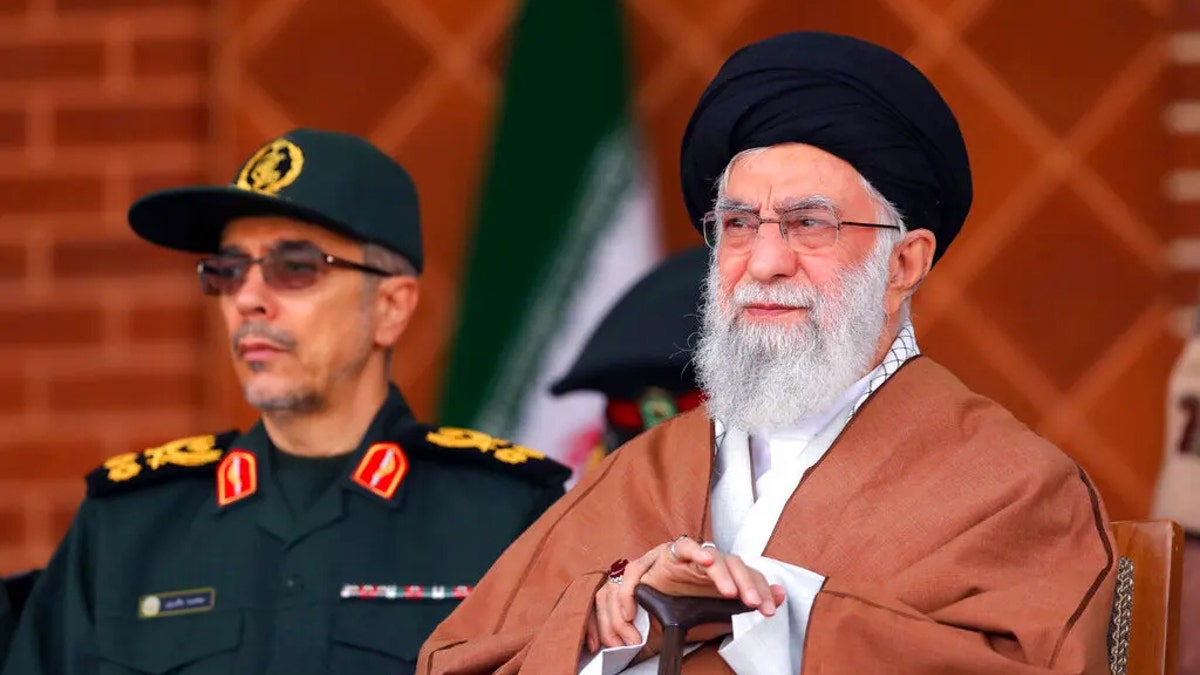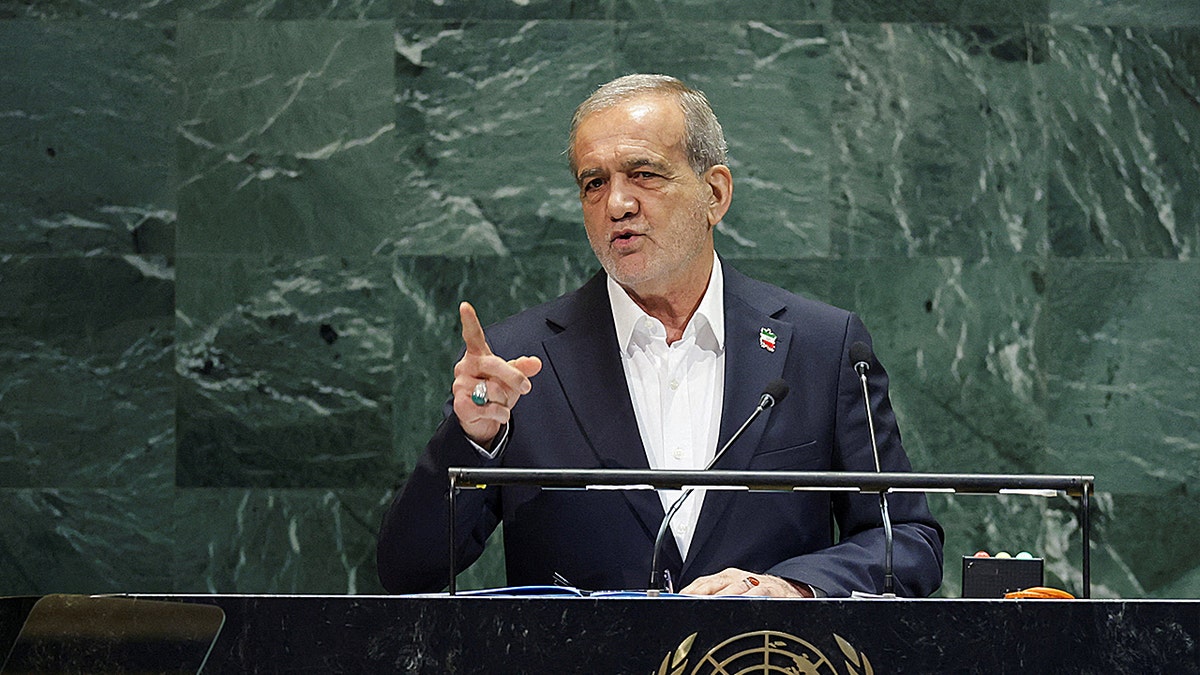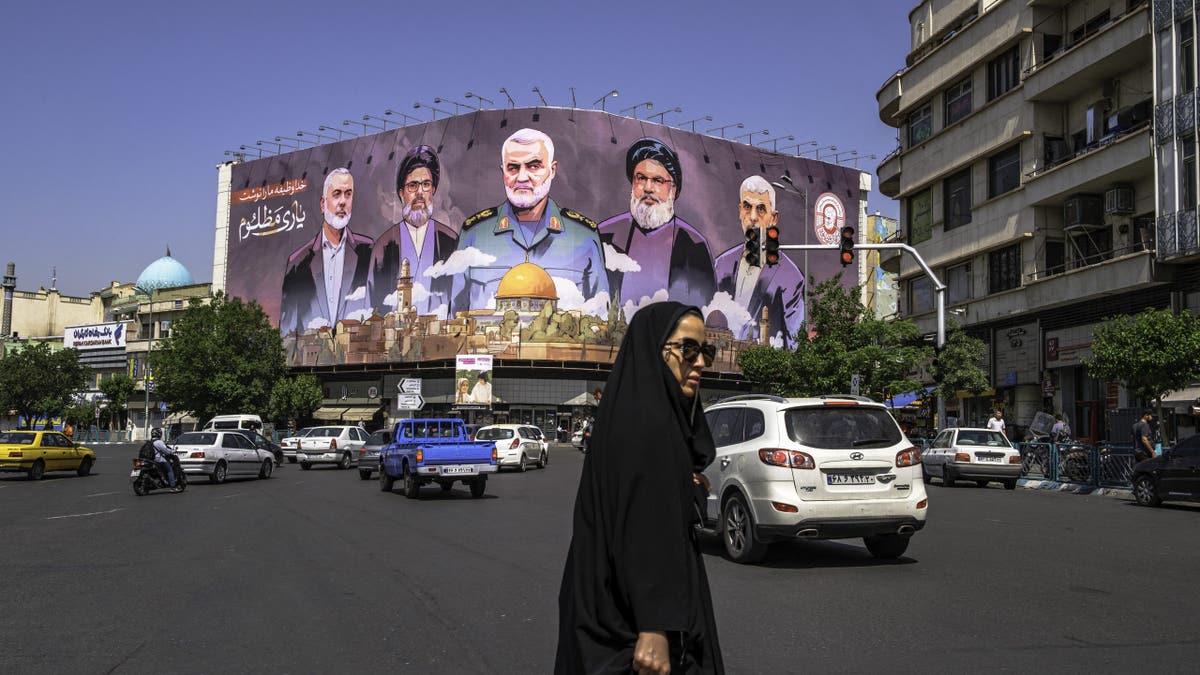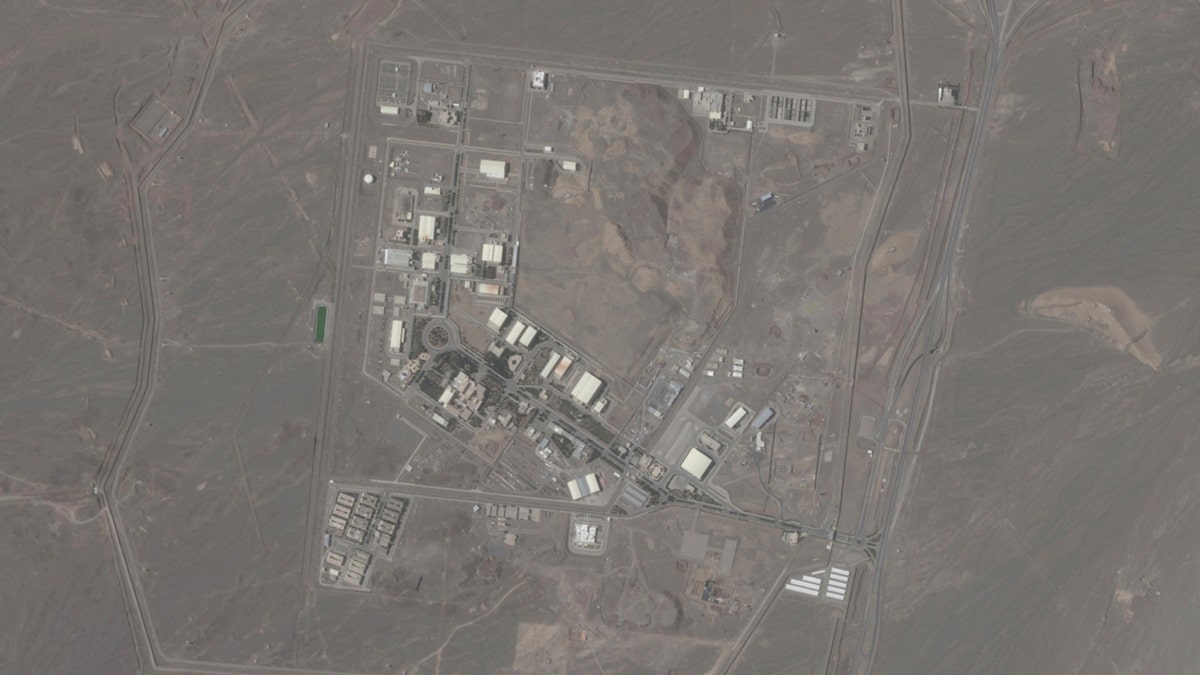Iran's 'water bankruptcy' will weaken regime and nuclear program, UN expert warns
NEWYou can now listen to Fox News articles!
Listen to this article
4 min
Iran is facing its worst drought in decades, raising fears of evacuations in Tehran while threatening the regime’s stability and nuclear ambitions, according to a leading environmental expert.
Kaveh Madani, Director of the United Nations University Institute for Water, Environment and Health, said Iran’s worsening "water bankruptcy" would impact the country’s ability to function and weaken its position on the global stage.
"This water bankruptcy weakens Iran on the world stage," Madani told Fox News Digital.
"If they want to stick to their ideology and fight with the West, they must use their natural resources and burn them, so if there is no water, there is less resilience and less capacity to resist."

Iran's Supreme Leader, Ayatollah Ali Khamenei, pictured sitting next to senior military official in Iran. (Getty Images)
Madani, who has long warned of environmental mismanagement in Iran, said the current water crisis across the nation was predictable.
"The water bankruptcy situation was not created overnight," he said. "The house was already on fire, and people like myself had warned the government for years that this situation would emerge."
President Masoud Pezeshkian warned that without rainfall before winter, Tehran could face partial evacuation, according to The Associated Press.
NETANYAHU SENDS MESSAGE TO PEOPLE OF IRAN AS COUNTRY FACES WATER CRISIS

Pezeshkian accused the U.S. of a "grave betrayal" at the United Nations General Assembly on Sept. 24, 2025, in New York City. (Jeenah Moon/Reuters)
Of the five major dams supplying the capital, one has already run dry and another is operating below 8% capacity, according to AP.
Energy Minister Abbas Alibadi also announced that water supplies will be cut off on some evenings to refill reservoirs, urging citizens to reduce consumption by 20% to avoid rationing.
"The symptoms were already present, and now the flames are undeniable. We are discussing Day Zero, when the taps would run dry in Tehran and other cities once immune to shortages," Madani said.
IRAN PRESIDENT ACCUSES US OF 'GRAVE BETRAYAL' WITH NUCLEAR STRIKES IN UNGA SPEECH

People move past a large banner featuring portraits of slain leaders from Iran-aligned armed groups, including Hamas leader Yahya Sinwar, Hezbollah leader Hassan Nasrallah, and Iranian commander Qasem Soleimani, in central Tehran, Iran, on May 1, 2025. (Photo by MOHAMMADALI NAJIB/Middle East Images/AFP via Getty Images)
"Iran is in a state of water bankruptcy, the result of decades of mismanagement, worsened by prolonged drought and climate change," he added.
Madani also said that the collapse of basic infrastructure could spark wider unrest.
"When people are out of water and electricity, you face domestic and national security problems that even Iran’s enemies, not even President Trump or Prime Minister Netanyahu, could have wished for this to happen."
Madani warned that the crisis threatens not just its citizens but also Iran’s energy and nuclear infrastructure.
Despite U.S. claims that airstrikes destroyed Iran’s nuclear facilites, new intelligence reported by The New York Times suggested ongoing enrichment at a fortified site known as Pickaxe Mountain.
"If water and electricity shortages persist, any nuclear program would also be impacted," Madani claimed.
THE DISTURBING CONNECTION BETWEEN UN'S GREEN ENERGY PUSH AND ILLEGAL IMMIGRATION

FILE - This satellite photo from Planet Labs PBC shows the Natanz nuclear facility in Iran on May 20, 2025. (Planet Labs PBC via AP, File)
"Lack of rain means less hydropower generation, leading to both water and power outages," he said.
The U.S. and its allies reimposed sweeping sanctions on Iran’s oil exports and banking sector and the end of the 2015 nuclear deal triggered penalties.
"Additionally, they face the issue of sanctions," said Madani, "There were already sanctions in place, imposed by the United States and there were also Security Council sanctions that, as you know, have been reintroduced."
"Iran is in resistance mode, and remaining in this mode means increased pressure on Iran's ecosystem, natural resources, and water, but it also means heightened concerns about food insecurity issues and dependence on food imports."
CLICK HERE TO DOWNLOAD THE FOX NEWS APP
Evacuation of Tehran, however, remains improbable, Madani said. "People have jobs, children are in school, so it can’t happen overnight. The government hopes for rain, but people are already afraid."
"Iran is in resistance mode, and remaining in this mode means increased pressure on Iran's ecosystem of natural resources and water," Madani concluded.
Emma Bussey is a breaking news writer for Fox News Digital. Before joining Fox, she worked at The Telegraph with the U.S. overnight team, across desks including foreign, politics, news, sport and culture.